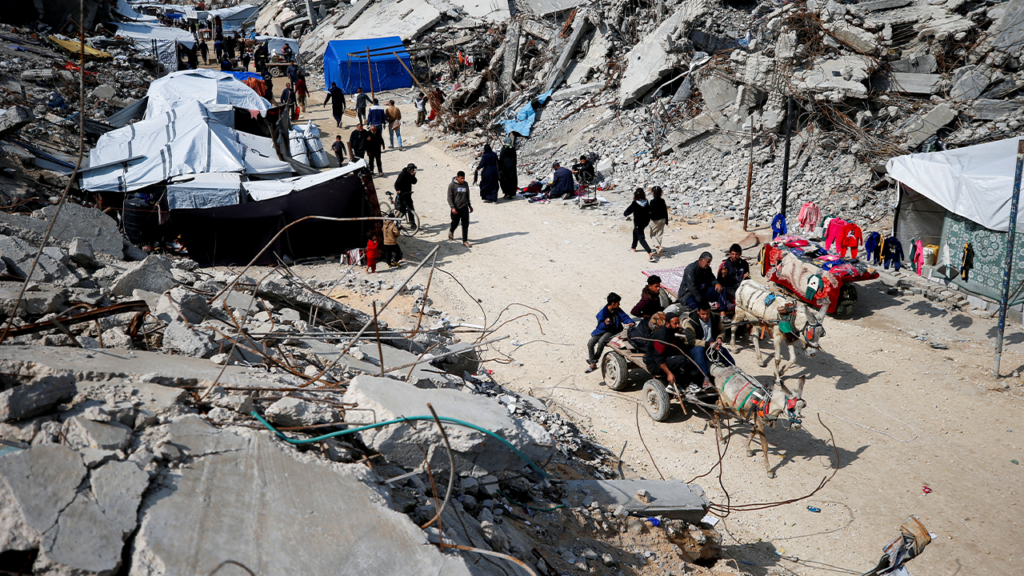Palestinians discuss leaving Gaza
Some Palestinians in Gaza told the Center for Peace Communications of their desire to leave the Hamas ruled enclave. (Video: The Center For Peace Communications.)
As Egypt reportedly rejects President Donald Trump’s resettlement proposal, citing the need to protect the Palestinian cause and its national security while coordinating with Arab leaders on an alternative plan, voices from war-ravaged Gaza say they want out.
Gazans, desperate to escape, told Fox News Digital they support President Donald Trump’s relocation proposal – to turn Gaza into a “Riviera of the Middle East” after emptying it of its more than 2 million Palestinians – though it remains unclear if they would be allowed to return. Many Gazans say they want to leave – if only the borders would open.
“I will be living in tents for 10 years. Egypt was responsible for rebuilding Gaza after past wars – and you can still see some of the rubble from the Israeli military campaign in 2008. I’d rather leave and gain 10 years of life than wait for some plan to be implemented while I live in a tent,” said Walid, a 29-year-old from Nuseirat Camp in northern Gaza, told Fox News Digital via WhatsApp in an interview facilitated by the Center for Peace Communications (CPC).
THE HISTORY OF GAZA AMID TRUMP’S PLAN TO REBUILD ENCLAVE
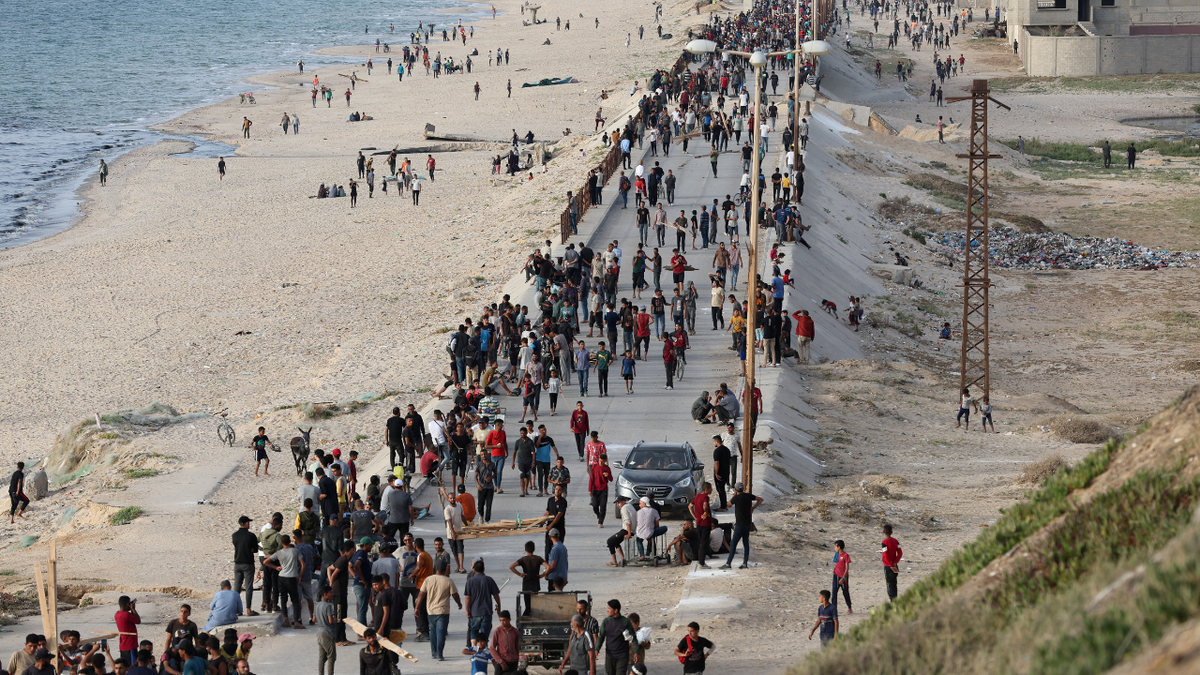
Palestinians gather in the hope of obtaining aid delivered into Gaza through a U.S.-built pier, May 19, 2024. (Reuters/Ramadan Abed/File Photo)
Walid, like many others, said that even before the war, Gazans were trying to leave – not because they wanted to abandon their homeland, but because they saw no future under Hamas rule.
Egypt, which has taken the lead in crafting a three- to four-year reconstruction plan, refuses to accept Palestinian refugees, keeping the Rafah crossing closed while preventing mass movement out of Gaza. Hamas, meanwhile, continues to exert military control while inflicting terror, despite being unable to provide basic governance, making life for civilians unbearable.
A man standing before the rubble of his former home, interviewed and filmed by CPC, explained his desperation, “If I left today, I’d be better off. You want me to live in these ruins? If you brought a cat here, it would run away – let alone a person.”
A woman in Gaza, her face blurred, like so many others afraid of speaking up against Hamas, spoke of a suffocating existence, telling CPC, “People feel like prisoners. There’s no way to get out. That has created a state of frustration and despair.”
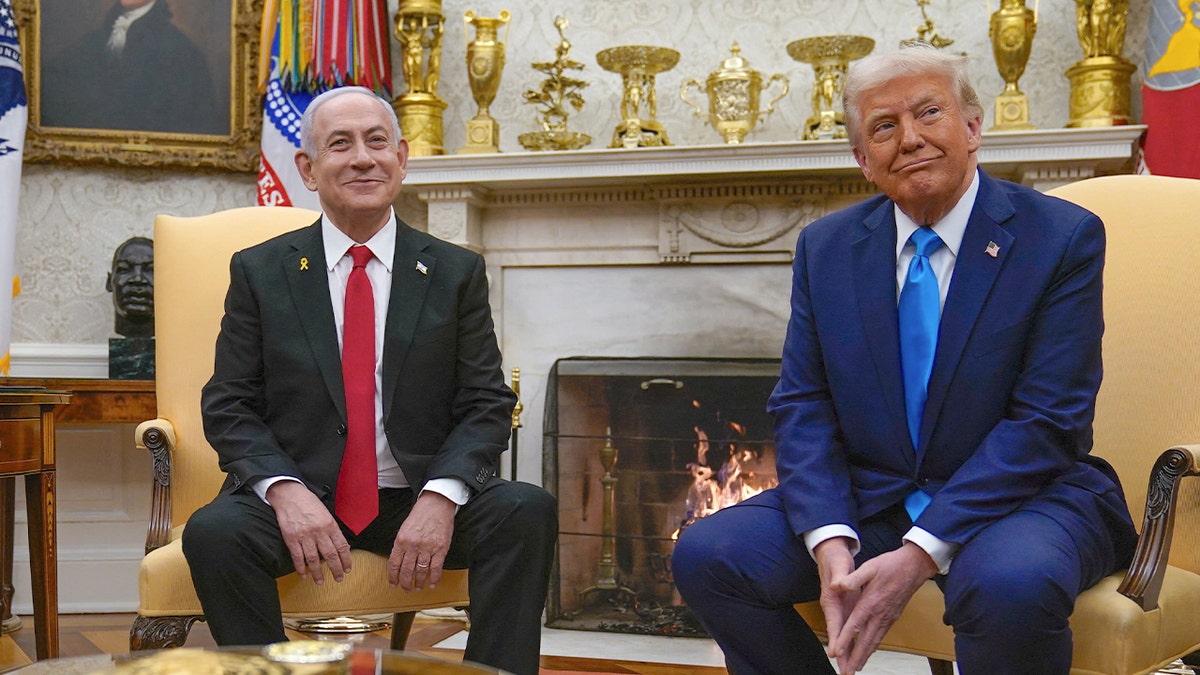
President Donald Trump and Israeli Prime Minister Benjamin Netanyahu meet at the White House, Feb. 4, 2025. (Reuters/Elizabeth Frantz)
One man near Gaza’s coastline, standing against the stark contrast between the sea and the destruction behind him, said: “Three-quarters of those who returned from displacement camps went south again because there are no houses left. I won’t stay here because there will be disease. Our situation is miserable. Anyone who says otherwise is fooling themselves.”
Another man, also filmed near the sea by CPC, said, “Forgive my language, but even dogs can’t live in northern Gaza. There’s no water, no electricity, no infrastructure at all.”
‘LEVEL IT’: TRUMP SAYS US WILL ‘TAKE OVER’ GAZA STRIP, REBUILD IT TO STABILIZE MIDDLE EAST
Joseph Braude, founder of CPC, a nonprofit that supports peace activists seeking freedom from terrorist domination of their societies, said: “Gazans are trapped by Hamas in unlivable conditions. It is unconscionable for anyone to ignore the desperate pleas of the men, women and children who want to voluntarily leave Gaza. These Gazans support President Trump’s call to open the border so they can pursue a better life free of war and destruction. If Hamas opened the border, the world would see a mass exodus comparable to the fall of the Berlin Wall.”
With no homes left, no functioning government and no guarantee that war won’t erupt again, some Gazans are daring to voice their support for Trump’s proposal, which would allow them to relocate to other countries, including Egypt and Jordan, at least for the decade-long rebuilding process estimated by U.S. officials. This is despite the dangers of speaking out against Hamas.
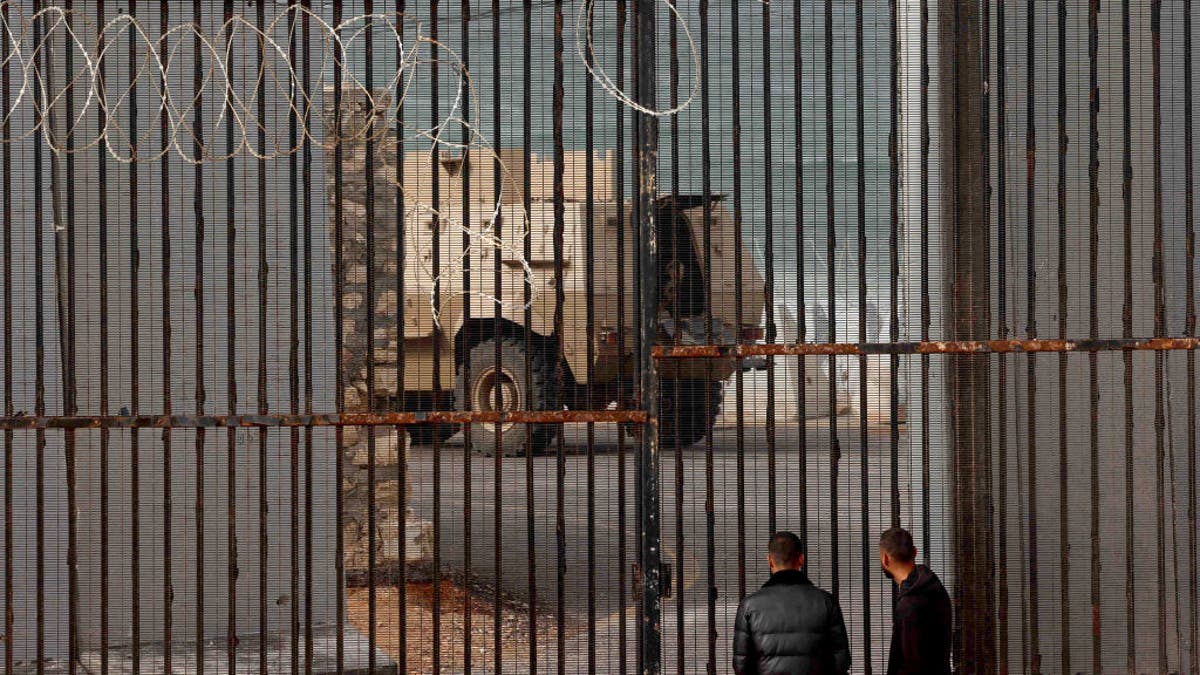
Displaced Palestinian men watch as an Egyptian army armored personnel carrier drives near the border fence between Gaza and Egypt, on Feb. 16, 2024, in Rafah, in the southern Gaza Strip. (Mohammed Abed/AFP via Getty Images)
Raji Sourani, a leading rights lawyer from Gaza, criticized Trump’s stance in an interview with the Associated Press, “This is the first time in history that a U.S. president speaks publicly and frankly about committing one of the most serious crimes,” he said.
Walid dismissed the claim that Trump’s plan amounts to “ethnic cleansing,” a phrase widely used in the international media. “Even those who are against the plan know Gaza won’t be empty. The ones pushing this propaganda are the same ones who supported Oct. 7. They try to spread slogans like ‘We are resisting, staying forever.’ But the people who are not involved in politics won’t oppose an idea that could finally end this war for them.”
Despite the widespread suffering, Hamas refuses to relinquish control. Mohamad, a displaced father in Gaza City, described a lawless society where Hamas fighters only appear when releasing hostages or suppressing dissent. Like many others, Mohamad is waiting for any corridor to open so he can escape.
CLICK HERE TO GET THE FOX NEWS APP
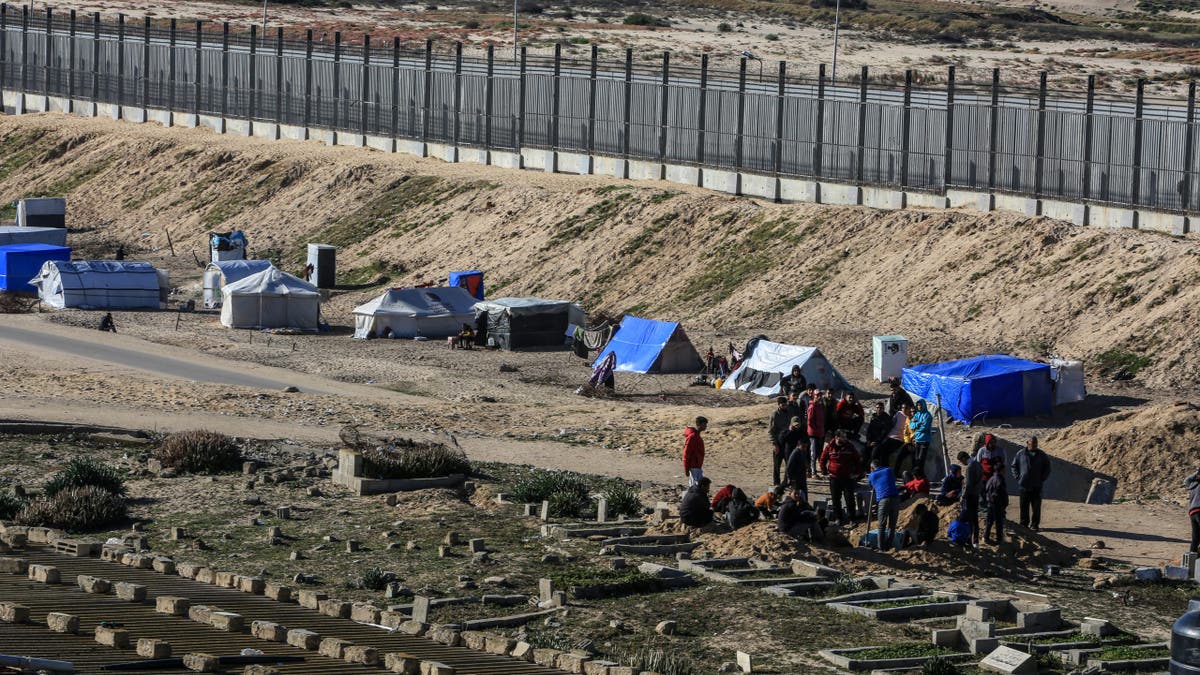
Makeshift tents set up near the heavily fortified security fence with Egypt on March 8, 2024, in Rafah, Gaza. (Abed Rahim Khatib/Anadolu via Getty Images)
“If they open the gate, half of Gaza will leave,” he told Fox News Digital. “The other half will stay, but not because they love Hamas. Some will stay because they still have a house, a job, or family members who can’t leave.”
As post-war plans for Gaza take shape, Mohamad’s question remains: “If Gazans want to leave, why won’t anyone let them?”

